To Be A Female Nigerian Feminist
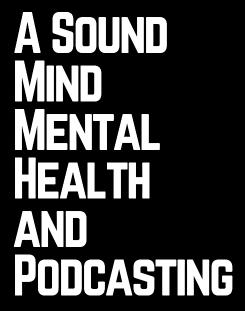
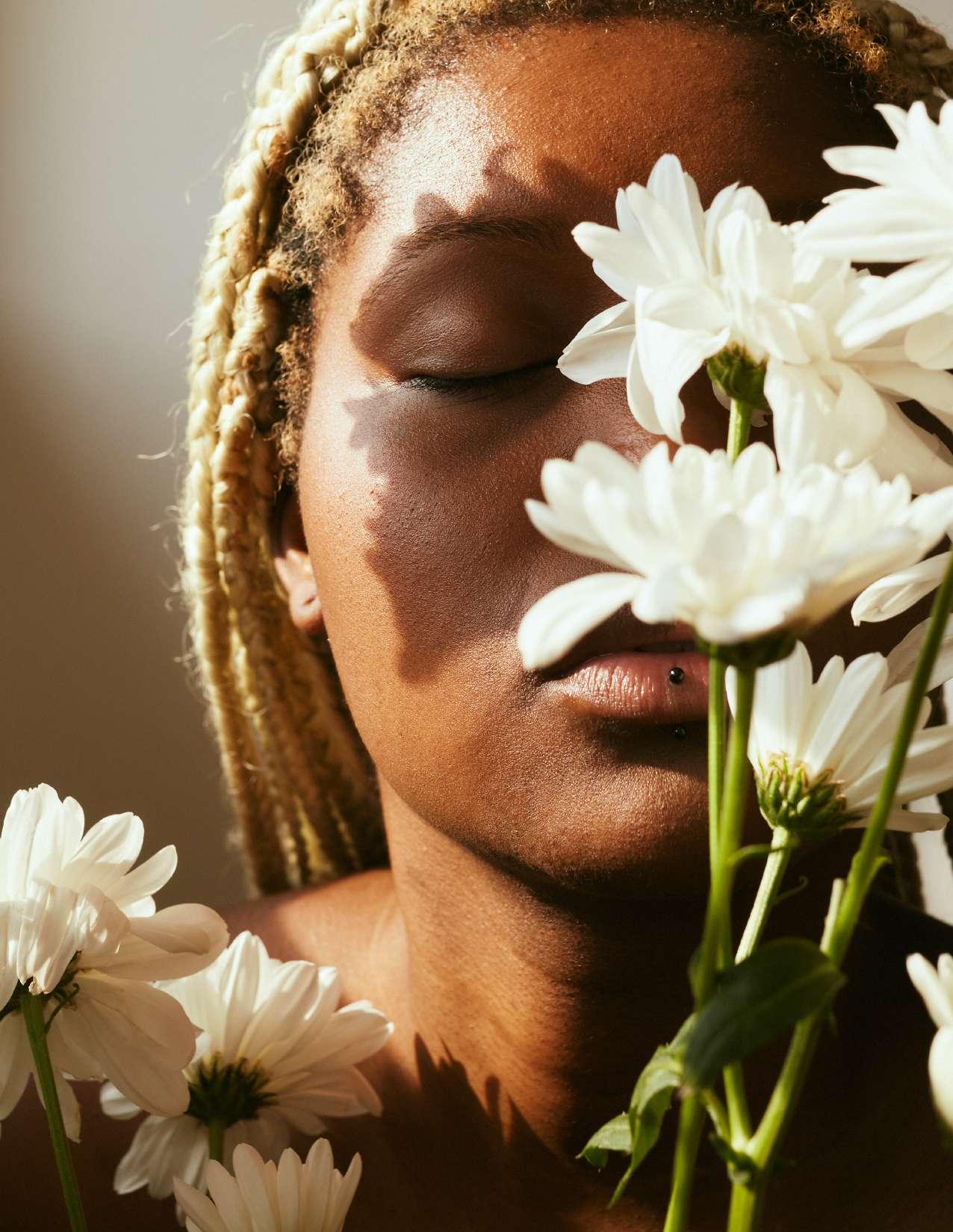

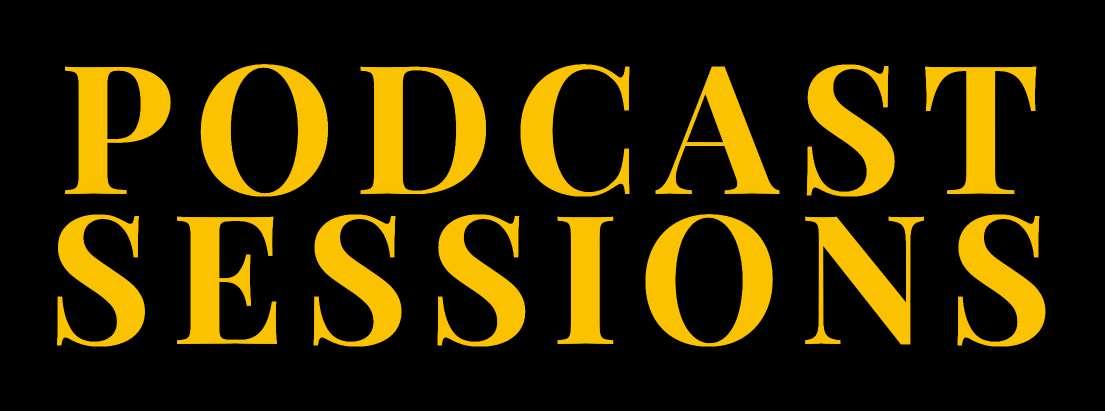

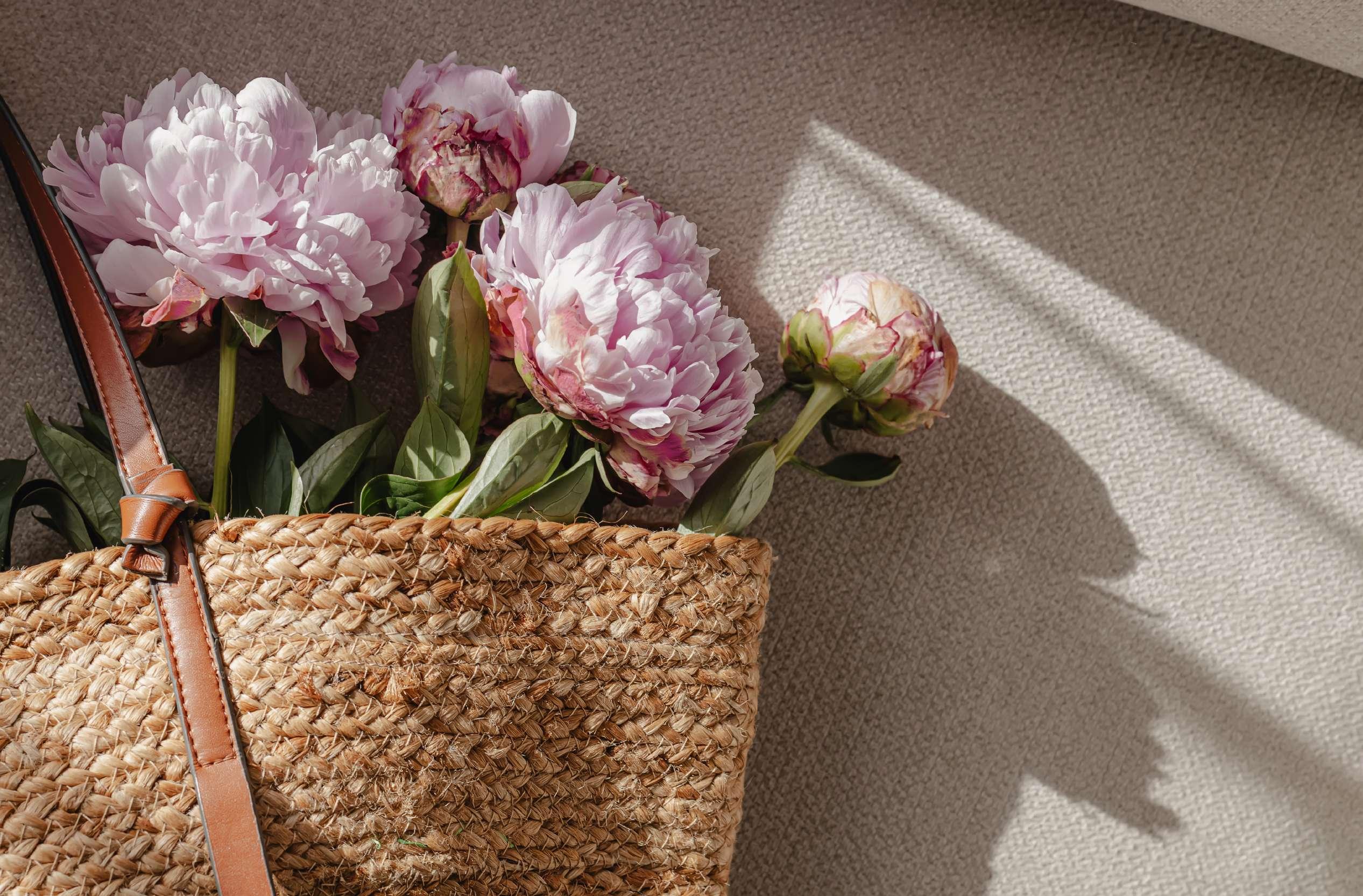
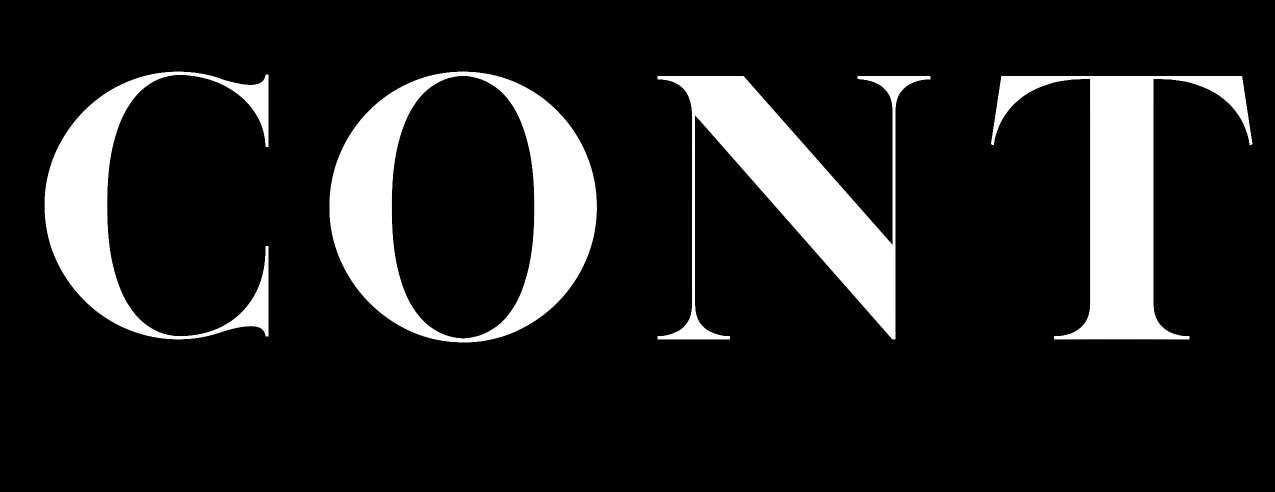

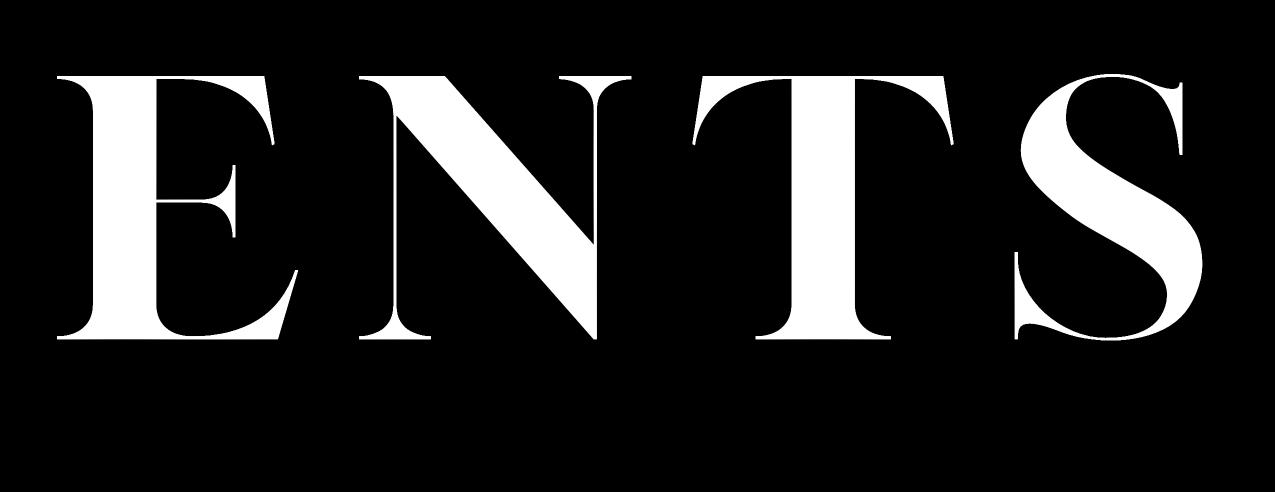










I'm delighted to welcome you to our very first all-women’s issue, perfectly themed “Give Her, Her Flowers”. ��
As we celebrate International Women’s Month, this is a beautiful time to honour the remarkable women who have shaped our world, both past and present
Our "Give Her, Her Flowers" issue is a heartfelt tribute to the women who inspire us to be fearless, bold, and authentically ourselves Within these pages, we aim to shine a light on extraordinary stories and insights from women in the podcasting space from around the world. May these pages serve as a bouquet of gratitude, admiration, and empowerment.
I’d love to hear from you. Feel free to share your thoughts on this issue, pitch a story, or explore partnership and sponsorship opportunities for upcoming issues You can reach me at rutendo@tinzwemedia com




Cynthia ‘Tasha’ Osajibenedict is a feminist powerhouse,renownedforherbest-selling books Dear Naija Girl and Sex After Harmattan As the host of the Dear Naija Girl podcast, she amplifies women’s voices and champions social activism
Podcast:DearNaijaGirl Instagram:@dearnaijagirl


Gofaone Modise is a digital entrepreneur, social media marketer and founder and director of a digital marketing agency called Inbound Media Her podcast, Conversations with Gofaone, is a leadingbusinesspodcastonthecontinent
Podcast:ConversationswithGofaone Instagram:@gofaonemodise1

Chansa is the CEO and founder of Africana Woman, and the host of the awardwinning podcast Africana Woman As a personal brand consultant, she is passionate about helping women live a healthy lifestyle Furthermore, Chulu is the founder of Zed Pod Hub,acommunityofZambianpodcasters

JJ Ramberg is an entrepreneur, television host, public speaker, best-selling author and mom She was named one of Inc Magazine’s Female Founders 100 and her company, Goodpods, was honoured as one of Fast Company’s Most InnovativeCompanies
Website:wwwgoodpodscom X:@jjramberg|@GoodpodsHQ

Podcast:ONUganda
Instagram:@onugandapodcast
Podcast:OkayKiasi Instagram:@podcastinginafrica
Podcast:AfricanaWoman Instagram:@africanawoman
Gathoni Ngumba is Africa’s leading podcast community builder with extensive experience in the industry As Afripods’ Community Manager, she connects podcasters across Africa, promoting growth in the ecosystem Beyond work, Gathoni is a photographer and co-host of theOkayKiasipodcast Chulu Aggie Patricia Turwomwe, the dynamic coordinator of the Uganda Podcast Association and host of ON Uganda, brings expertise honed by audio skill training in Cape Town (2022) and podcastcoachingsince2023
Angela Machua, a project and data management consultant at Afripods, is a passionate advocate for African voices and stories She believes in the potential of podcasting in Africa and envisions a vibrant and inclusive podcasting community Angela is also an advocate for mental health and isthehostoftheZenMomentspodcast
Podcast: ZenMomentsPodcast
Instagram:@angela machua

Andisiwe Michelle May is a versatile multimedia journalist and podcast producer, with a passion for human rights advocacy and amplifying stories through the power of audio She is the co-host of What’s Crap on WhatsAppbyVolumePodcastsandAfricaCheck
Website:VolumePodcasts
LinkedIn:AndisiweMichelleMay

Amanda Mudege and Rumbi Dube are the co-hosts of the It’s Layered podcast Based in Melbourne and Prague respectively, their podcast chronicles their layered experiences as black Zimbabwean women living in the diaspora Amanda runs I Am Whom I Am Styling alongside her nine-to-five job and motherhood Rumbi has many creative endeavours underherbeltincludingcltr+shyft
Podcast:It’sLayeredPodcast
Instagram: It’sLayeredPodcast

Melissa Mbugua is a multifaceted innovator and entrepreneur who has carved a niche for herself In 2019 she co-founded Africa Podfest, a company based in Kenya that has sparked growth in African podcasting, placing it in the global spotlight She has also served as a director at CreativesforClimate,andisanadvisorontheImpactCouncilofD&AD
Podcast:SemaNasiPodcast
Instagram:AfricaPodfest

If you’ve ever watched a Podcast Sessions promo video, like our last International Women’s Day one or our previous trailer featuring the co-hosts of The Messy Inbetween (Murugi Munyi and Lydia K M), you’ll know that they’re nothing short of spectacular In this issue, we wanted to take a moment to spotlight our incredible video editor, Anel Wessels, who plays a vital role in transforming raw footage into polished, compelling videos that capture the essence of our issues Her skills encompass a deep understanding of pacing, visual storytelling, and the ability to sync visuals with audio seamlessly
Anel is a Cape Town-based freelancer with a fine arts background As a versatile creative, Anel excels as a videographer, editor, and photographer, blending technical expertise with an artistic eye. With a diverse clientele ranging from impactful NGOs like NextGenMen to global brands such as adidas, Anel has demonstrated a unique ability to adapt and tell compelling stories across a spectrum of projects.
Anel’s storytelling is distinctly people-focused and emotive, capturing the essence of each narrative with a keen understanding of human connection. This emphasis on emotion and connection not only sets her work apart, but also brings a personal touch to every project undertaken.
Currently residing in Cape Town, Anel is committed to creating work that resonates with clients and audiences alike.




BY:
GATHONI NGUMBAWe are living in the digital age and the power of podcasting as a platform for storytelling is undeniable Despite this, the voices and experiences of women remain underrepresented, leaving many important stories untold
An episode of Red Table Talk featuring Salma Hayek made me realise this They were discussing menopause and I listened in surprise to some of their experiences, and was struck by how such a universal female experience could still be shrouded in mystery The fact that they had to go through it first-hand to really know what happens to a woman’s body was astounding to me, yet unfortunate I had the same reaction listening to revelations about pregnancy experiences on TikTok How are the experiences that affect half the population still so misunderstood?
I think podcasting offers an intimate and powerful medium for women to share their truths, struggles, and triumphs When my sisters and I started our podcast, Okay Kiasi, we doubted whether our voices would matter However, while discussing everything from family dynamics to personal losses, we quickly realised, through the feedback we were getting, that our stories resonated with others In sharing our experiences we had created a platform that offered solace and understanding for our audience
The success of podcasts like Mama Tales by Sally Kuria and Circling the Rabbit Hole with Dr Claire Kinuthia showcases the necessity and universal appeal of content that focuses on women’s narratives These podcasts cover a range of topics from motherhood and sexual health to breaking down barriers and fostering a deeper understanding across genders These podcasts show us the importance of creating a platform for what are sometimes considered taboo topics and making them accessible


An example of this is when Sally spoke about how men have approached her and thanked her for sharing her experiences in motherhood. They said that they learned from her conversations and were able to be better partners to the mothers of their children. This is the impact podcasting can have. It can foster empathy and understanding, bridging gaps in knowledge and communication.
I think it is very important for more women to add their voices to the podcasting space. Whether discussing heartbreak, as Julia Gaitho does on So This is Love, exploring various topics with the ladies on The Nook, or learning about Formula 1 from Baaba and Queen on Hairpins & Straights, adding your voice to the world of podcasting matters.
As you read this I want you to know that your story is powerful and your voice is necessary. By sharing your experience, you will contribute to building a more inclusive, empathetic and understanding world. Your narrative could be the catalyst for change, offering someone solace, creating new understanding, saving relationships or even sparking new friendships.
Add your voice to the podcasting space. You never know whose life it might change.



When it comes to the content creation behind a successful podcast, staying motivated and inspired are key elements that contribute to the longevity and sustainability of it.
So, you’ve decided to launch a podcast and are feeling inspired. But with such a wide array of podcast genres out there – from true crime to social commentary to interview-based podcasts – how do you decide which one to slot your podcast into? And how do you decide what type of content to create? Or which techniques to incorporate to keep creating high-quality content?
According to recently published statistics, a podcast episode’s ideal length ranges from 20 to 40 minutes, and 74% of active listeners want to learn something new or gain a fresh perspective
Emphasising that podcasting continues to be an emerging space in media consumption.
Podcasting has also allowed listeners to consume content while doing other things, making for effective multitasking in this modern, busy world. Most listeners note that they download and listen to their favourite podcasts while doing mundane, everyday tasks like commuting or cleaning And even though video podcasting is increasing in popularity, only 17% of podcasters record videos of their episodes
So, it is not out of reach for podcasters to have a loyal following That said, staying motivated and inspired are vital to the content you create



This is a key step in the foundation of content creation. If you are passionate about the topics you choose, you can talk about them endlessly and feel motivated to continue to do so. Whether it is a niche topic such as investing in property, or something much broader like pop culture, you have to believe that you are the most passionate person to talk about it and then create content seemingly “effortlessly” around it. Know your why and what gap you fill.
Not the most exciting part of podcasting, however, you need to schedule your content with honesty and clarity. How many episodes will you launch with? How often will you release new episodes? Will you build in some rest and a break for yourself to prevent burnout? If your podcast has multiple hosts, such as ours (It’s Layered), how will you manage differing schedules and priorities? All these factors need to be considered and a realistic content schedule set up for consistency for your listeners.
A bit of a buzzword, but it is important to really consider how your listeners are relating to your content and tuning in. When you start, it might feel like a stab in the dark, but as soon as your first few episodes launch, you will notice what type of engagement you are receiving from your content. The range of podcasts available also elicits a range of listener engagement; from the shock and horror of true crime to the glitz and glamour of beauty podcasts, to the sheer glee of social commentary and comedy podcasts. One important thing to consider is whether your type of podcast and your content are what you intended. Not that you need to hinge everything on engagement or throw in the towel if it’s not favourable, but it gives you room to grow and improve. As a podcaster, you know why you started podcasting, and engagement with your listeners will offer some encouragement and motivation to keep going.
All in all, podcasting is a journey – some of them inevitably come to an end, some go on and evolve, but staying motivated and inspired to create content helps make the journey worth it


 WRITTEN
WRITTEN
BY:
CYNTHIA ‘TASHA’ OSAJIBENEDICT
I was 11 years old when I realised this was not how I wanted to live my life I had just watched my aunt be insulted by the first daughter’s society of my kindred called “umu Ada” because the father of her children had left her for another woman “Why does she get the blame for the actions of a man?”, I asked myself
Years later I would come to realise that what I witnessed that day was merely the tip of the iceberg when it comes to the myriad of challenges women face in society For me, it was just the beginning of understanding the deeply ingrained biases and often hypocritical standards to which women are subjected
I should have known then what I know now That I am a feminist through and through
Being a feminist in Nigeria isn’t a walk in the park Our society tends to fear what they can’t comprehend, especially when it comes to a woman confidently embracing her thoughts and identity I quickly realised that openly declaring myself a feminist meant challenging deeply entrenched cultural and religious beliefs about the roles and expectations of women in society

As I began to speak out about gender inequality and advocate for women’s rights, I faced backlash from friends, family members, and even strangers Some accused me of betraying my culture and religion, while others dismissed feminism as a Western ideology incompatible with Nigerian values
Navigating these tensions was difficult, especially when faced with the pressure to conform to societal expectations of femininity and submission I found myself constantly having to defend my beliefs and justify why feminism was important to me, often feeling isolated and misunderstood in the process The online world wasn’t any better On social media platforms, I encountered vicious attacks from trolls and misogynists who sought to silence my voice through harassment and intimidation It was disheartening to see the lengths to which some would go to discredit me and discredit feminist activism
Despite these challenges, I refused to back down I drew strength from the stories of other Nigerian women who were courageously fighting for their survival and for their place in society without succumbing to its demands, and from the women fighting for gender equality in the face of adversity

“Some accused me of betraying my culture and religion,while others dismissed feminism as a Western ideology incompatible with Nigerian values.”

Kiki Mordi,
Ngozi Adichie, and Ifedayo Agoro inspire me with their feminist works, especially Adichie, whose advocacy for feminism through storytelling profoundly impacts me as a Nigerian woman Her ability to connect personal experiences with the global feminist movement and challenge societal norms has empowered me to embrace my identity and voice, inspiring me to actively participate in Nigeria’s feminist discourse Adichie’s influence transcends literature, motivating me and many others to work towards a more equal and inclusive society
My podcast, Dear Naija Girl, has become the lens through which I explore society and culture The podcast is dedicated to unravelling the complexities of womanhood, sisterhood, relationships, and life’s profound truths
One of the angles we regularly explore is intersectional feminism
In the podcast, we highlight how this lens allows us to dissect and understand multifaceted societal issues
Intersectional feminism acknowledges that gender inequality intersects with other forms of discrimination, such as race, class, gender, sexuality, and ability
Podcasting has provided me with the ideal medium for in-depth analysis and storytelling, and through this journey of self-discovery I have found that there is great power in being an African female feminist
Chimamanda
WRITTEN BY:
ANDISIWE MICHELLE MAYThere have been many times that I have found myself frustrated by an edit I groan and shake my head, take off my headphones Put them back on, take them off, stand up and sigh in frustration because things are not going my way Other times, my face is so close to the screen, eyes squinting and staring, trying to make it work And then there are times when my wrist aches and my back is bent at an awkward angle, obsessing over a smooth transition while feeling the pressure to export before the deadline. It is in these moments that I appreciate nothing about the podcast production process but, once you get that edit to the sweet spot, there is a sense of accomplishment and relief that you did not give in or give up.

But how can we take care of ourselves in the process of giving 100% to the gruelling but fulfilling work of creating theatre of the mind? I don’t have all the answers, but there are a few inherent parts of the job that we need to start prioritising
Considering the (terrible) state of my wrist – I know I am not the only one – an ergonomic set-up goes a long way With the long hours we spend producing and the repetitive listening, I think it is vital to invest in a set-up that accommodates this. My wrist aches less by using an ergonomic mouse, a monitor helps reduce the squinting, and the quality set of headphones I have will hopefully slow down or prevent any impending hearing loss My point is, the work that we are so passionate about comes with wear and tear.
But for me the most important part is knowing when to pause. As a young black woman, in most areas of my life, I am faced with the pressure to “do it all” and to “do it now” regardless of how it affects my balance And it’s no different in my work life
While I may work in the creative space, I am still telling stories – real events and lived experiences about people, and at times this can be emotionally taxing. One of the things that concerned me most when I worked in a newsroom during the Covid-19 pandemic, was the lack of structures to support journalists and reporters emotionally For some of us, we know the package does not always come with all the benefits Even though I am not dodging rubber bullets at protests or chasing down spokespeople for comment and accountability, I am still very much a journalist using my reporting skills in immersive storytelling And this too comes with its own challenges

You face them how you can with what you have, and at times you do it at the cost of your physical and mental state As a young black woman, there has always been pressure to outperform and overextend myself – both in a deadlinedriven newsroom and in the free workflow of creativity. To have it all, maintain the perfect work-life balance, and pacify the idea that I carry the emotions of my work home
In the process I have had to learn to pause and breathe To understand that my balance is different to the next person and it should work for me. So this is a reminder to acknowledge when you need to pause and lean into the things that help to rejuvenate you so that – in the words of author Eric Nuzum – we can keep making noise!




In the dynamic domain of podcasting, where the quest for your next captivating listen resembles the proverbial search for a needle in a haystack, Goodpods stands as a paragon of innovation, thanks to JJ Ramberg This platform, conceived by the seasoned journalist and entrepreneur, revolutionises the way podcast enthusiasts and creators connect, anchored in the power of personal recommendations Here, we delve into JJ’s journey with Goodpods, her vision, and her influence on the tech and podcasting landscapes
Goodpods is defined as a platform facilitating the connection between podcast listeners and new episodes, and podcasters with fresh audiences, through recommendations from friends, family and experts JJ shares how she uses the app, stating: “Whenever I’m about to go for a run, I check out my Goodpods feed and I can see what my husband, my best friend, my brother (and others) have listened to that’s how I choose something to listen to”
The start of Goodpods can be traced back to a moment of epiphany. “My brother and I are both big podcast listeners and we were constantly calling each other to get a recommendation. A lightbulb went off that seemed so obvious – there should be a platform for podcasts where you could see what your friends liked,” she shares.
JJ’s commitment to spotlighting female entrepreneurs is profoundly personal. Inspired by her mother’s entrepreneurial triumphs, she aimed to rectify the narrative imbalance favouring male entrepreneurs in media coverage. Since 2005, she has championed female founders, striving to inspire and elevate women in the business sector. Her endeavours have been recognised, with an accolade from Inc. Magazine – she was named one of their Female Founders 100 – and Goodpods’ inclusion in Fast Company’s list of Most Innovative Companies, validating her influence and vision.
She characterises her leadership approach as centred around empathetic listening, underscoring the significance of comprehension and empathy in team dynamics. When it comes to her advice to aspiring female entrepreneurs, she draws inspiration from a friend. “When you are starting something meaningful – whether that is a company, a relationship, an athletic endeavour, whatever it is – know that there are going to be some hard parts. That way when things get hard, you are not blindsided – you know that it’s to be expected and you just have to make your way through it. That’s all part of the journey.”
To unwind and disconnect from the demands of work, JJ turns to hot yoga, finding in it solace and revitalisation.
 WRITTEN BY: AGGIE PATRICIA TURWOMWE
WRITTEN BY: AGGIE PATRICIA TURWOMWE
As we celebrate Women’s Month, it’s essential to acknowledge the transformative role of technology in shaping the podcasting landscape. Over the years, technology has revolutionised how we create, produce, and share podcast content, empowering creators like never before.
Reflecting on my journey in podcasting since 2019, I’m amazed at how far we’ve come Gone are the days of struggling to produce quality content with limited resources Today, podcast creators have access to a plethora of tools and resources, from ideation to distribution

Platforms like Calendly streamline scheduling, Canva enhances design elements, and Descript simplifies editing and transcription Tools like Sprout Social and Spotify enable efficient social media scheduling and performance monitoring, respectively, mostly powered by AI software to help maximise audience engagement and reach
Despite the immense potential of podcasting, women often face challenges in navigating the technical and logistical aspects of production However, initiatives like DW Akademie’s training programmes and organisations like Pollicy here in Uganda are bridging this gap by providing education and support in podcasting technology and content creation
The integration of technology into podcasting has streamlined production processes and also democratised access to diverse voices and stories Podcasts serve as a platform for underrepresented voices to be heard, addressing a wide range of topics from Formula 1 commentary to mental health advocacy Moreover, podcasts have become a powerful tool for educating and addressing societal issues such as gender-based violence, contributing to meaningful social change

“The integration of technology into podcasting has streamlined production processes and also democratised access to diverse voices and stories.”

Despite headlines suggesting a podcast bubble burst, the industry remains robust, and podcasts, tracing its growth from public radio roots, are growing at 10 times the rate of radio. According to recent insights from Edison Research, investment in the podcast space presents a unique opportunity for growth.
One of the most significant barriers women face in podcasting is the fear of societal expectations and potential backlash However, podcasts offer a safe and inclusive space for women to share their stories authentically and challenge stereotypes By embracing technology and leveraging platforms like podcasts, women can amplify their voices, influence narratives, and reach a wider audience
Looking ahead, the future of podcasting is promising With advancements in technology and access to resources, podcasters can produce content more efficiently and consistently As podcasters, we have a unique opportunity to create impactful and life-changing content that resonates with our audience and drives meaningful change
Podcasters can diversify beyond traditional podcasting, exploring live events, publishing, and video By embracing video strategies, utilising platforms like YouTube, podcasters can reach a wider audience Addressing production costs is also crucial for sustainability, challenging the high-cost production mindset, and recognising the global potential, exploring intellectual property sharing and co-production
In conclusion, as we celebrate Women’s Month, we must recognise the transformative power of podcasting in amplifying women’s voices and driving societal change By harnessing the power of technology and embracing the podcasting medium, women can continue to shape narratives, challenge stereotypes, and pave the way for a more inclusive future

Like many of you, my journey into podcasting was unplanned, lacking structure and vision My sole desire was to share the stories of African women It began with a dare from a mentor to go live on social media, prompting me to invite friends for interviews on Instagram Live to conquer my fear Eight conversations later, I realised their impact deserved a wider audience Thus, the Africana Woman podcast was born in 2021.
Three years on, the Africana Woman Network has expanded, encompassing four shows: Africana Woman, The Educated Africana, LEMBA: The Africana Authors Space, and No Breaks. Personally, I transitioned from a full-time job to a podcastpreneur, transforming my (expensive) hobby into a business. While the journey has not been linear, its rewards have been abundant. Here are key lessons learned:

Fundamentally, every business solves a problem for a particular set of people in a particular way For example, Africana Woman facilitates challenging conversations for women of African descent whose voices have been silenced by their environment or society We use our podcast to build rapport, initiate conversations, and invite women to be a part of our programmes when they are ready So in this case the podcast is not the business, but a tool
Explore various models that suit your podcasting business, whether it’s business-to-consumer (B2C) or business-tobusiness (B2B) This could involve showcasing products/services, hosting live events, offering premium content, advertising partnerships, or creating content for other businesses, which opens up numerous opportunities if you specialise in a specific area of the podcasting ecosystem
This includes understanding your brand personality and voice. Deliberately positioning your podcast to stand out, creating a strategy, outlining your customer journey, and being accessible. The key here is to know that your brand will evolve over time. It does not have to be perfect from the beginning, simply allow yourself to keep refining your brand, your story, and your messaging. If you have been following Africana Woman from inception, you would have seen that we have gone through roughly three rebrands. We had a messy beginning, but now we are becoming more refined. What has not changed is our consistency and commitment to growing Africana Woman.
Regardless of the industry your business is in, building a community is absolutely essential. The reason being that when you can feel the pulse of the people who are loyal to your brand, you can make informed decisions about what to supply because you understand the demand.
Ultimately, your success hinges on your mindset. Believe in the profitability of podcasting as a business, remain open to opportunities, and harness creativity and innovation. Together, we’re shaping the future of African podcasting. Let your imagination soar.





Have you created your 2024 podcast vison board? Well here are a few fun things to research and think about. If you can see it, you can achieve it. Speaker



Downloads



You have a podcast show idea that excites and scares you in equal measure You know you have a good “radio voice” that will work well for your show. Maybe your show has been running for a while but you want to take it to the next level. How do you set yourself up so that the show has the best chance of succeeding the way you envision it to and more?

Think about your favourite podcast, the one that inspires you the most Apart from good storytelling, what makes your favourite podcast a success is consistency in quality of production and promotion Most likely, you have expectations of the show which are reliably met over time The show communications are probably quite consistent and clear, too, via social media and the show content itself. This has helped build a relationship between you and the show. It is all these efforts behind the scenes that separate chart-topping shows from the rest.
Building your set-up for success begins with putting your intentions and dreams down on paper. Your creative and process choices should be documented somewhere you can refer back to as this will help you stick with them. What is your podcast vision? What are your goals? How do you intend to achieve them? What are the daily, weekly and monthly actions you need to take towards your vision?
You don’t rise to the level of your goals; you fall to the level of your habits. – James Clear
For most people with great ideas, it is neither a lack of talent nor a shortage of energy that keeps them from achieving their dreams. More often, it is the execution part that prevents people from soaring at the level of their dreams. Daily actions and thoughts may not always be as exciting as ideating and planning, but they are the path to reaching your goals. Here are a few guiding questions to help you lay down your podcasting habits for success:
Why are you making this podcast?
What is your vision for it?
What do you value that you want to embody through the podcast?


What will the podcast look like and sound like? This includes choices like the logo, colours, podcast name, sound and visual aesthetic

Who is your intended audience and how will you reach them?
Picture the individuals you hope will listen to the show Where would you reach them and how would you best engage them in a way that resonates with them?

What are your goals?
What actions will you take towards reaching your goals?
Map out daily and weekly actions
Create a budget with expenses and income to match your action plan
This method will help you to build a structure for your show to the standard of your creative vision, and keep you connected to that vision in the face of inevitable challenges and shifts along the way This structure is also a foundation on which you can build as you bring on board a supporting team and partners to execute your plans as you grow

Become a Podcast Sessions Brand Ambassador. We’re seeking passionate individuals to represent us in different cities
BENEFITS:
Attend local podcast and media events in your city on behalf of The Podcast Sessions.
Receive quarterly training to enhance your skills (writing, production, etc).
Gain invaluable experience in podcast and magazine production.
Opportunities to intern and learn (at this time we only offer unpaid internships)
Work with one of the coolest and innovative media companies on the continent.
Interested candidates should send: a brief introduction about themselves, why they want to become a Brand Ambassador and details of any previous experience in event attendance, writing and reporting
Submissions considered on a rolling basis.
Email: thepodcastsessions@gmail.com






Radio has been considered king ever since its introduction to Africa in the early 20s. In most homes, radio has always been the first source of information, however, the media landscape has changed significantly in the last decade While radio is still key in many households, radio stations are struggling to retain their audiences as they lose them to other platforms that seem more up to date and modern So how can radio stations embrace digital transformation and meet old and new audiences where they are? Podcasting might be the answer
Podcasting has exploded in popularity in the last few years, so it offers a unique and powerful platform for radio stations to reach new audiences By leveraging podcasting platforms, radio stations can extend their reach beyond traditional broadcasting, engage with listeners in new ways, and tap into a growing market of ondemand audio content How can they achieve this?


Firstly, radio stations can repurpose their existing content into podcast episodes Radio shows often feature interviews, music, and discussions that can be edited and repackaged as stand-alone podcast episodes By repurposing content, radio stations can reach listeners who may have missed the original broadcast or prefer to consume content on-demand A radio station that has successfully done this is Spice FM in Kenya Using the Broadcast to Podcast platform on Afripods, they have been able to repurpose their live radio shows and offer them on-demand as audio podcasts, thereby serving the audiences who are seeking on-demand content
Additionally, radio stations can create exclusive podcast content to attract new listeners This could include behind-the-scenes interviews with hosts and guests, bonus content not aired on the radio, or special series that are only available as podcasts Exclusive content can help radio stations stand out in a crowded podcasting landscape and attract new audiences
Moreover, radio stations can use podcasting platforms to engage with listeners in new ways Podcasts allow for more interactive and immersive experiences, such as listener call-ins, Q&A sessions, and live recordings By engaging with listeners directly through podcasts, radio stations can build a loyal and dedicated audience
Radio stations can also use podcasting platforms to experiment with new formats and content styles Podcasting allows for more creative freedom and flexibility than traditional radio broadcasting, enabling radio stations to explore new topics, styles, and approaches to content creation This can help radio stations attract new audiences who are looking for fresh and innovative content
“By leveraging podcasting platforms, radio stations can extend their reach beyond traditional broadcasting”
Podcasting offers various monetisation opportunities for radio stations These include advertising, sponsorships, subscriptions, and merchandise sales By monetising their podcasts, radio stations can generate additional revenue streams and diversify their income sources
Podcasting can also help radio stations to build their brand further and establish themselves as thought leaders in their industry By creating high-quality, informative, and entertaining podcasts, radio stations can attract a loyal following and enhance their reputation
Therefore, it is quite clear that digital transformation is critical for radio stations looking to get into podcasting as it offers new opportunities for audience reach, engagement, monetisation, brand building, and adapting to changing trends By embracing podcasting, radio stations can position themselves for longterm success in the evolving media landscape









YOU ASKED; WE LISTENED.
When The Podcast Sessions called for female podcast submissions, Gofaone Modise received so many entries that we decided it was only fitting that she was our podcast spotlight for this issue We’re excited for you to get to know this amazing podcaster and social media marketer




Actually, I find myself using words like ‘interesting’ and ‘absolutely’ a lot But as for a catchphrase, not really We do have a tagline which is Learn & Be Inspired
It just sort of happened, to be honest, but it all felt like a natural progression since I started with Instagram Lives weekly

Typically two to three cameras, two chairs, good lighting and that’s about it Oh, and lapel mics; the simpler the better
Being authentic and providing a platform for industry specialists to share their insights

equipment / set-up Sipho Mabaso and Witney Schneidman, who spoke on US - Africa relations and investments




Monetising was the greatest challenge, but making our niche corporate helped curb that issue.


To feature brilliant industry experts from all over Africa and eventually have a summit hosting them all That would be a dream!


































CLICK ON THE COVER TO WATCH IT NOW

The excellence of The Podcast Sessions magazine lies not just in skill and vision, but also the tangible resources that make each issue possible.
Help us keep the presses running and the stories flowing. Donate through PayPal and be the backbone of every page we produce.

Advertise / sponsorship opportunities: rutendo@tinzwemedia.com

